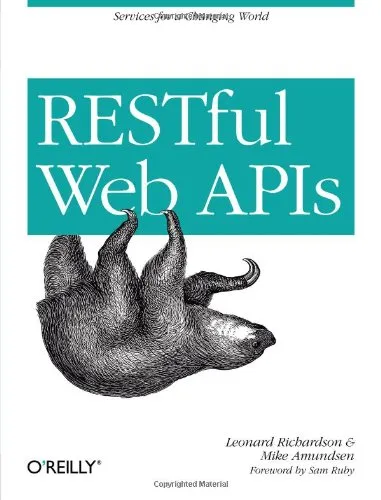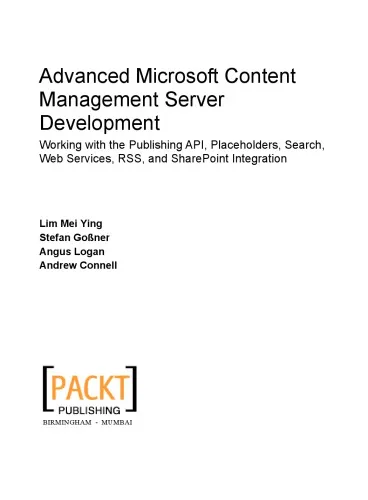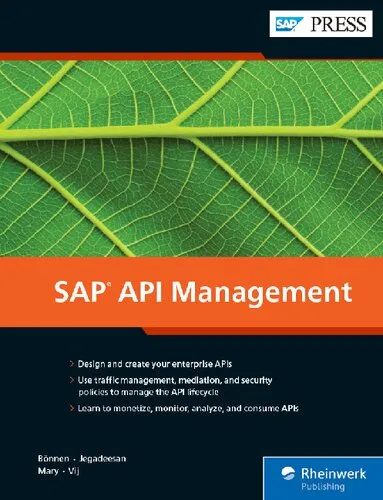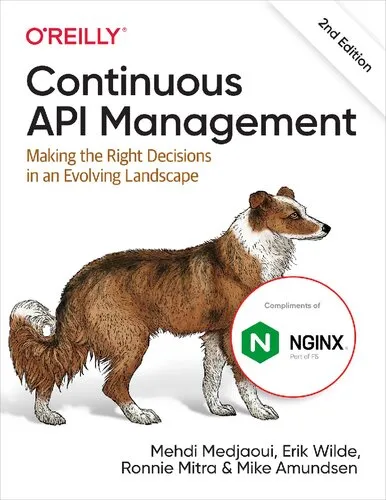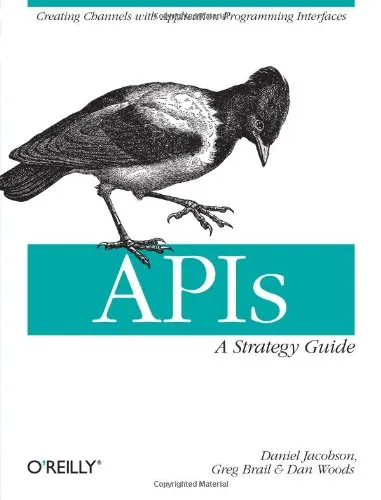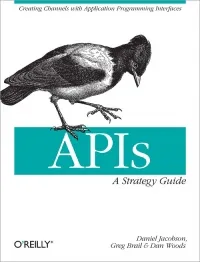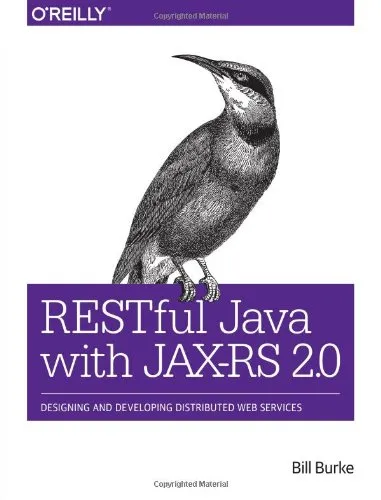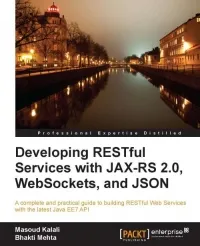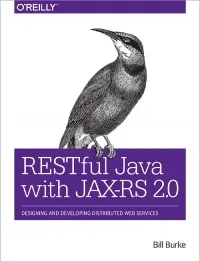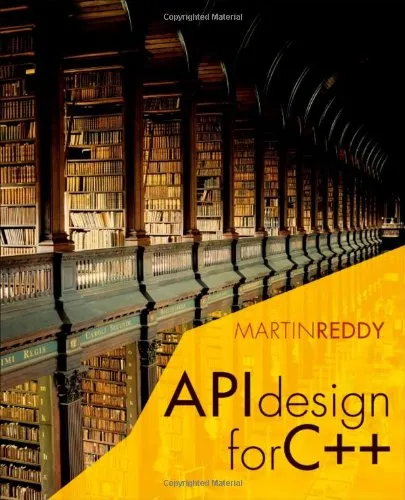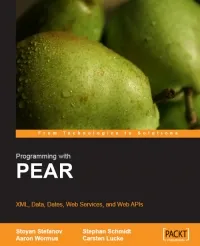RESTful Web APIs
5.0
Reviews from our users

You Can Ask your questions from this book's AI after Login
Each download or ask from book AI costs 2 points. To earn more free points, please visit the Points Guide Page and complete some valuable actions.Related Refrences:
Introduction to "RESTful Web APIs"
In the ever-evolving landscape of web development, "RESTful Web APIs" by Leonard Richardson, Mike Amundsen, and Sam Ruby is an essential guide that empowers developers to design robust, scalable, and truly RESTful web services. This book builds on the foundational principles of REST (Representational State Transfer) to provide a comprehensive roadmap for understanding, implementing, and leveraging APIs that adhere to REST's architectural style.
Whether you're a developer crafting web services from scratch or an API consumer striving to interact with diverse systems, this book offers invaluable insights into the discipline. Packed with thought-provoking ideas, practical examples, and a focus on hypermedia and evolving standards, "RESTful Web APIs" transcends a mere how-to guide and delves deep into the philosophy and best practices of creating web APIs.
Detailed Summary of the Book
"RESTful Web APIs" serves as both an instructional manual and a philosophical treatise on designing web APIs that align with REST principles. The book begins by revisiting the fundamentals of REST, explaining its core constraints—client-server architecture, stateless interactions, cacheability, uniform interface, layered system, and optional code on demand. This is followed by an in-depth exploration of how HTTP, the backbone of the web, serves as the foundation for RESTful APIs.
The authors emphasize the importance of hypermedia as the "engine of application state" (HATEOAS), showcasing how linking and self-descriptive messages enable APIs to evolve without breaking. The book also examines API design patterns, including how to use URLs, HTTP methods, and response codes effectively. By introducing real-world examples and common anti-patterns, the authors help readers identify the pitfalls of poor API design.
Going beyond theory, "RESTful Web APIs" introduces new formats such as JSON-LD and HAL, explaining how they can help build interoperable APIs. It discusses the trade-offs in choosing hypermedia formats and addresses frequently misunderstood topics like versioning, extensibility, and graceful degradation. Furthermore, the book stresses the value of developer empathy, teaching how to create APIs that are not just functional but also user-friendly and discoverable by developers.
Finally, the authors explore the future of web architecture, discussing the evolution of REST, hypermedia's growing adoption, and the broader implications of API design in an interconnected, API-driven world.
Key Takeaways
- Learn the essential principles of REST and how they apply to API design.
- Understand hypermedia and its role in enabling scalable, future-proof APIs.
- Gain practical knowledge of API design patterns, industry best practices, and common pitfalls to avoid.
- Explore the use of emerging hypermedia standards such as JSON-LD and HAL.
- Develop APIs that not only meet technical requirements but are also developer-friendly and discoverable.
- Discover how to future-proof APIs in a rapidly changing technological environment.
Famous Quotes from the Book
"Hypermedia is the next evolution of REST. It's not just an option, but a fundamental requirement for a truly RESTful system."
"APIs are for developers. Design APIs with empathy by considering how developers will use, explore, and debug them."
Why This Book Matters
In a world increasingly driven by interconnected systems, APIs form the backbone of digital communication. "RESTful Web APIs" stands out for its thorough exploration of REST principles and its commitment to semantic rigor. It demystifies the complexities of REST while offering actionable guidance, making it a crucial resource for developers of all levels.
The authors’ focus on hypermedia, developer usability, and emerging web standards highlights the book's forward-looking perspective. By blending theoretical foundations with practical insights, this book equips readers with the tools and mindset required to navigate and shape the evolving API ecosystem. Whether you're designing APIs for a startup or maintaining enterprise-level systems, this book will revolutionize your understanding of REST and web architecture.
Free Direct Download
You Can Download this book after Login
Accessing books through legal platforms and public libraries not only supports the rights of authors and publishers but also contributes to the sustainability of reading culture. Before downloading, please take a moment to consider these options.
Find this book on other platforms:
WorldCat helps you find books in libraries worldwide.
See ratings, reviews, and discussions on Goodreads.
Find and buy rare or used books on AbeBooks.
